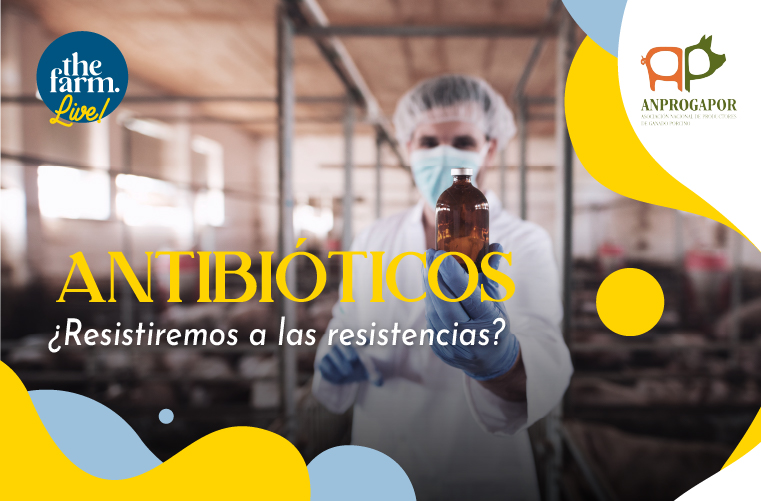
Webinar ‘Antibiotics: Will We Resist the Resistances?’
What is the current situation in Spain?
The Spanish pork industry continues to lead the fight against the indiscriminate use of antibiotics in livestock.
The National Plan Against Antibiotic Resistance (PRAN) has launched a series of programs for the voluntary reduction in the consumption of certain antibiotics in different species, and in 2016 the Reduce Colistin in Pork Program began, an agreement signed by representatives of national associations of veterinarians and professionals in the pork production sector, for the voluntary reduction of colistin consumption in Spain’s pork livestock sector. The REDUCE program has already achieved a 97.18% reduction in colistin consumption in pork (2015-2018).
Overall, the commitment of a large part of the sector has been very important and the results are there.
Can we continue to progress to EU levels? Can an increase in mortality be a brake on reducing antibiotics?
Rewatch our webinar to hear the experts’ opinions.
https://www.youtube.com/watch?v=h1wm_WFuPkw&list=PLqHtr0w3ywVEbT8H6Dw6_h2I2BdjDHMgC&index=1
This time, we had well-known veterinarians from the sector:
✅ Javier Llamazares (President of #Averporcyl) ✅ Enric Marco (Veterinary advisor for production) ✅ Miguel Angel Higuera (Director of #Anprogapor)
The Debate
The debate is not about whether antibiotics are necessary or not, because we cannot eliminate all the bacteria on the planet.
Currently, pharmaceutical laboratories invest their resources in other projects, they have lost interest in creating new types of antibiotics because it is not profitable. Neither for human nor veterinary use.
In a phrase: antibiotics, as few as possible, as many as necessary.
This is how Spanish veterinarians put it into practice, the administration marks the path by monitoring the amount of antibiotics each one administers, yet there is still a sense of guilt among professionals when using antibiotics, but everyone has adapted to the new regulations and prescribes them always according to those standards.
One Health and Antibiograms
The webinar also provided basic tips for reducing antibiotic consumption, such as cleaning facilities between batches, providing perfect condition water and food, professionalizing the sector, which allows better handling of animals, reducing animal densities on fattening farms
And they arrived at the One Health concept. The issue of resistances is not only in animals, it is also related to the environment.
We break a lance in favor of the One Health approach. Veterinarians and scientists are aligned with this concept, but the vast majority do not believe in it.
Antibiograms. There was much debate about these tests. They are a great help but a field veterinarian cannot wait for the result of an antibiogram, he has to medicate the sick animal until he gets the results. He must rely on his experience to opt for a treatment.
Alternatives to Antibiotics
The Reduce Colistin plan was successful because we had zinc oxide to use instead of colistin, but in 2022 it will no longer be possible to use it. We need to find another option. Are we prepared?
This is where probiotics, phytotherapies come in… Are they alternatives or realities?
There is a lack of regulation in this sector, but the moment commercial houses feel protected by legislation, these products will be a very important alternative. And they are natural products that are always good for the care of animals.
It is clear that happy pigs are much healthier. Animal welfare and vaccines have substantially improved the health of animals.
We all seek the best for the sector, working together we will achieve the necessary improvements to continue leading the pork industry.
Stay tuned to our social networks to be informed about the pork sector. Visit our YouTube channel and rewatch all the webinars.
The Farm.
